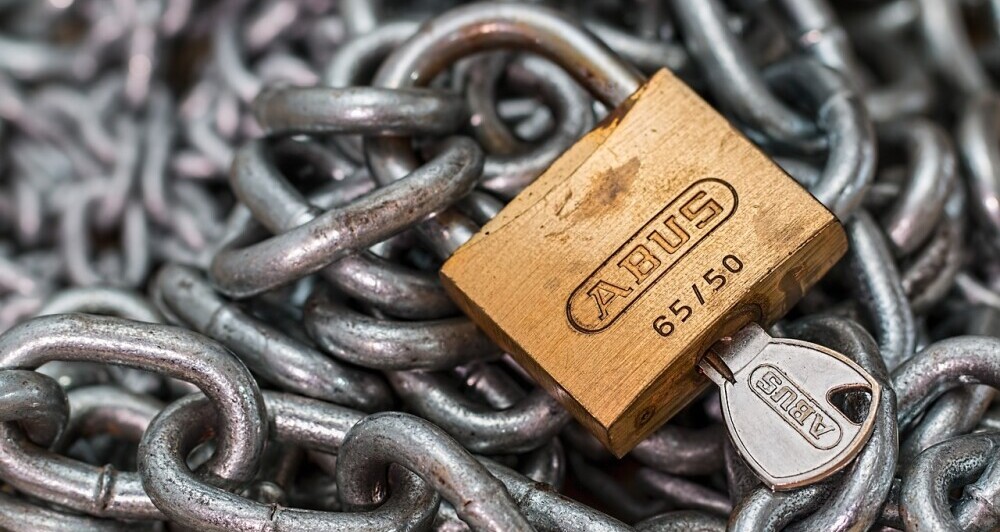Crypto Scams Unveiled: How To Spot And Avoid Fraud In The Blockchain World
Cryptocurrencies have taken the world by storm, drawing interest from novice and experienced investors alike. They promise dazzling returns and a slice of the digital future, but they also lure in scammers looking to make a quick buck off unsuspecting enthusiasts.

You might wonder why scams are so prevalent in the crypto space. It’s the combination of anonymity, minimal regulation, and the sheer complexity involved in blockchain technology that creates the perfect breeding ground for fraud. Without a central authority governing the exchange, scuba diver scams dodge traditional security measures you’d find in banking systems.
You’ve probably heard about the infamous pump-and-dump schemes, fake ICOs, and phishing attacks. These aren’t buzzwords — they’re real tactics used by fraudsters. For instance, a pump-and-dump scheme might involve misleading investors to inflate a cryptocurrency’s price, only for the scammers to sell their tokens and leave everyone else with empty wallets.
Real people with real savings are affected by these scams every day. Consider someone who opts for Bitcoin as their first investment, only to find out later they’ve been duped by a clever imposter. It’s a hard hit, financially and emotionally, making the entire crypto market feel like an unsafe playground.
Sure, the world of crypto can be daunting, but knowing about these scams is the first step to shielding yourself from potential losses. The goal? To be smart and vigilant, always asking questions and researching before diving into any crypto investment.
Spotting the Red Flags: Identifying Cryptocurrency Scammers
Scammers are like shadows in the crypto world, often hard to spot until it’s too late. A little skepticism can save you a lot of heartache. So, what should you watch out for? First things first, if something sounds too good to be true, it probably is. Promises of guaranteed returns and zero risks are major red flags.

Keep an eye on unsolicited messages, whether through email, social media, or messaging apps. Scammers love lurking in the DMs, posing as customer service reps or even friends to gain your trust. Always verify the identity of anyone contacting you by cross-checking with official channels.
Another classic trick is the fake website. These sites mimic legitimate cryptocurrency exchanges or wallets, tricking you into divulging personal data. Double-check URLs for typos and look for secure connection indicators like a padlock icon in the address bar.
Be wary of high-pressure tactics. Scammers will rush you to make quick decisions, often by dangling a limited-time offer. But the beauty of blockchain tech is its transparence, so take your time to research and think through your choices.
Real-life scam stories often serve as excellent lessons. Remember QuadrigaCX, where investors lost millions in funds? That’s a cautionary tale in trusting unknown entities. Use the power of community insights and online reviews as a line of defence, ensuring you’re not alone in your crypto journey.
Tracing the Untraceable: Can Crypto Scammers Be Pursued?
The anonymity of blockchain transactions gives scammers a sense of invincibility, making people question if they can ever be caught. While challenging, tracing crypto scammers isn’t impossible.

Every transaction in cryptocurrency leaves a digital trail on the blockchain. Think of it as breadcrumbs that, with the right tools, can be pieced together. Law enforcement agencies and cybersecurity firms often use advanced software to track these transactions and unmask scammers.
Legal complexities can arise when dealing with international scams, as regulations vary widely. But don’t lose hope. There are global efforts and agreements among countries to tackle cybercrime. Organisations like Interpol actively work on cases where large sums are involved.
You might find some success stories inspiring. Consider the case of a scammer apprehended after stealing millions from an exchange. It was because victims acted swiftly, reporting and providing information to authorities, that justice was served.
Community efforts strengthen the chances of catching these elusive criminals. Reporting suspicious activities and joining forums can contribute to broader knowledge and resources, collectively increasing our ability to trace and bring scammers to justice.
Stay Safe in the Digital Realm: Ensuring Website Legitimacy
When it comes to investing or managing your cryptocurrency online, recognising a legitimate website can feel like decrypting a complex code. Websites designed by scammers can look just as polished as those of genuine companies, so being extra cautious is a must.

To start, always examine the URL carefully. Scammers often create websites with minor errors in the domain name, like using ‘coiinn’ instead of ‘coin’. Use search engines to check for the website’s reputation and look at reviews or comments on forums for any red flags.
Secure connections are your best friend here. Websites that begin with ‘https://’ are generally more secure, but don’t stop there. Look for a padlock icon, which indicates that the site encrypts data and offers another layer of security.

You should also do a bit of detective work regarding contact information. Legitimate sites provide physical addresses, phone numbers, and real customer support options. Conduct a quick search for these details to verify them.
Be wary of websites asking for personal details beyond what is necessary, like full bank information or passwords to unrelated accounts. Keep an eye out for strange requests or pop-ups that demand instant action.
Above all, trust your instincts. If the site’s content seems sketchy, or if the deals sound too good to pass up, step back and reassess. It’s better to miss out on a potential opportunity than to become the next victim.
Buy Crypto HERE…
Buy your cold wallet here…
Sign up for further updates
Follow us here on X for regular updates…..
Nothing within this blog constitutes financial advice. We strongly encourage you to conduct your own research (DYOR) before making any investment decisions. Always invest wisely and never invest more than you can afford to lose.
Disclaimer: This page contains affiliate links. If you choose to make a purchase after clicking a link, we may receive a commission at no additional cost to you. Thank you for your support!














No responses yet